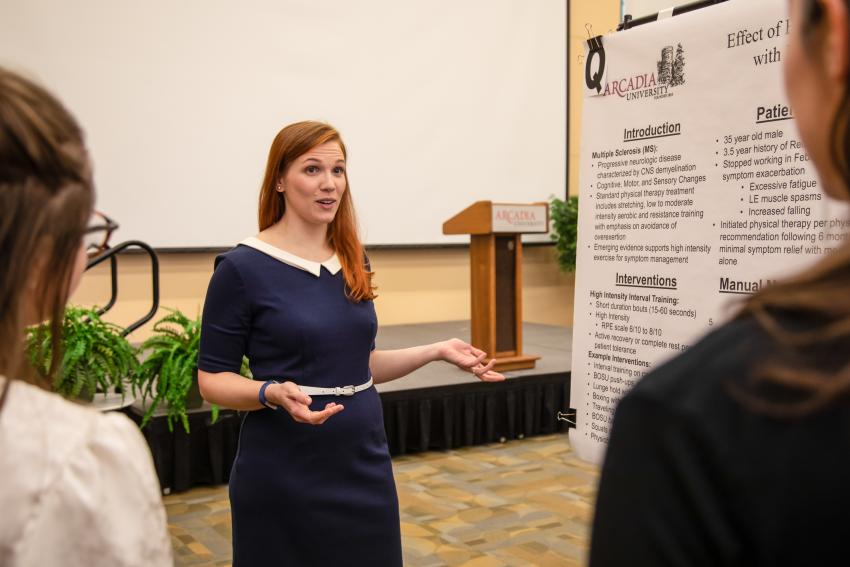Dr. Pedersen ’20DPT Finds Passion in Pelvic Floor Health

To find her calling, Dr. Aase Pedersen ’20DPT knew she had to change the trajectory of her career path as a case manager and supervisor with the Department of Welfare.
With a bachelor’s degree in Psychology from Temple University, she knew she wanted to work in a medical profession and began researching career and educational opportunities in the physical therapy, psychology, and medical fields. After observing and working part-time as an aid at a small physical therapy clinic, Dr. Pedersen decided to continue her education in physical therapy.
Upon entering Arcadia’s Department of Physical Therapy program, she considered practicing neurological and orthopaedic physical therapy after graduation. However, through a serendipitous recommendation by a classmate, Dr. Pedersen began working in a women’s health professional role, which specializes in rehabilitating muscles in the pelvic floor. Since beginning her new career and training at CORE 3 Physical Therapy, Dr. Pedersen developed a newfound interest in pelvic floor conditions and treatment.
“I think Arcadia’s Physical Therapy program did a good job in reminding us to be open to new experiences and interests,” said Dr. Pedersen. “A lot of people go in thinking that they want to do one specific type of treatment, and then we get exposed to so many different things. They remind us to keep an open mind, because you might learn about something you didn’t know existed before, and it might end up being something you’re really passionate about.”
Dr. Pedersen began working at CORE 3 at the end of March, in the midst of the COVID-19 outbreak. To combat the further transmission of the disease, Dr. Pedersen’s office began taking precautions such as limiting the amount of in-person visits at the clinic. While visits for pelvic floor dysfunction typically involve in-person examinations and hands-on treatment, Dr. Pedersen estimates that roughly half of CORE 3’s appointments are currently conducted over telehealth. During these virtual visits, the clinic has used an innovative approach to treatment through teaching the patient various stretches and exercises online, and reviewing possible changes in their daily routine to improve their condition.
“It’s really common for people to have pelvic floor dysfunction—but it’s not normal,” said Dr. Pedersen, explaining the commonality of conditions such as postpartum incontinence. “People don’t know that there are things you can do for those kinds of conditions, and physical therapy is one of the best treatments for it. It can be really life-changing for people.”
In the future, Dr. Pedersen hopes to use her experience with Arcadia’s Multiple Sclerosis and Parkinson’s Disease exercise program, Dan Aaron Stay Fit Program, to help CORE 3 develop an exercise program for those with Parkinson’s disease. She hopes to one day receive her Pelvic Rehabilitation Practitioner Certification and continue learning more about pelvic floor research and treatments.


